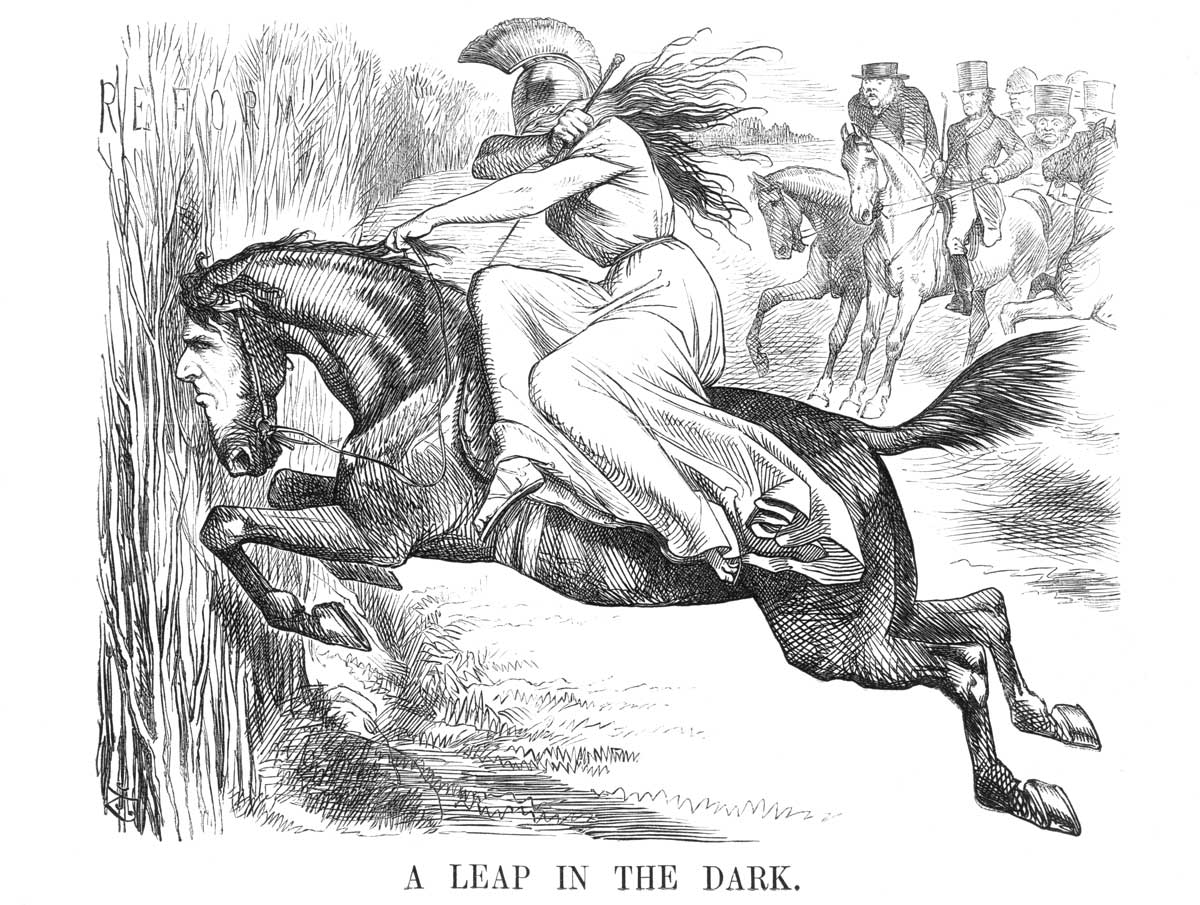‘U-turn if you want to…’
Mark Rathbone analyses the causes and consequences of sudden changes of policy in nineteenth-century British politics.

‘U-turn if you want to. The lady’s not for turning,’ Margaret Thatcher told the Conservative Party Conference in 1980, chiding faint-hearts in her own party and justifying pressing on with monetarist economic policies despite a steep rise in unemployment. But in the nineteenth century, sudden u-turns on policy were a notable feature of British politics. This article looks at four great u-turns: the decision in January 1829 by the Duke of Wellington and Sir Robert Peel to introduce Catholic Emancipation; Peel’s decision in 1846 to repeal the Corn Laws; Disraeli’s conversion to the cause of parliamentary reform in 1867; and Gladstone’s adoption of Home Rule for Ireland at the end of 1885. We will examine what circumstances led to these u-turns, what motivated the leaders who executed them, and what consequences they had for the parties concerned.
Catholic Emancipation
